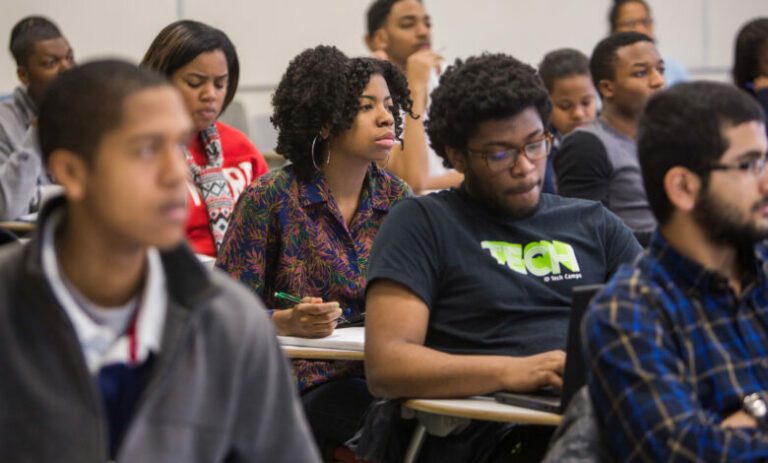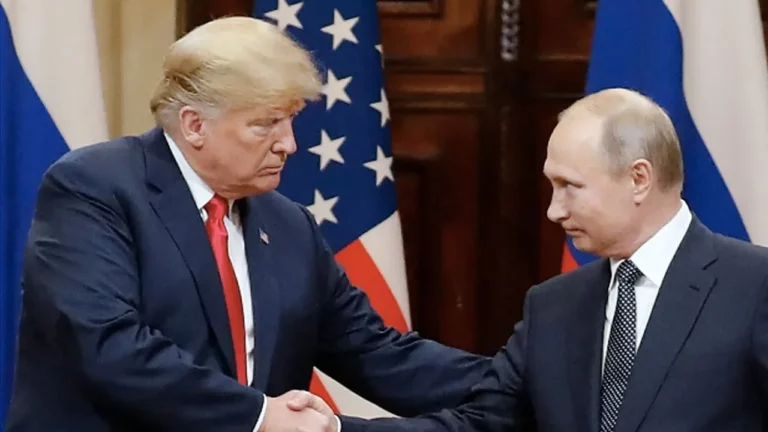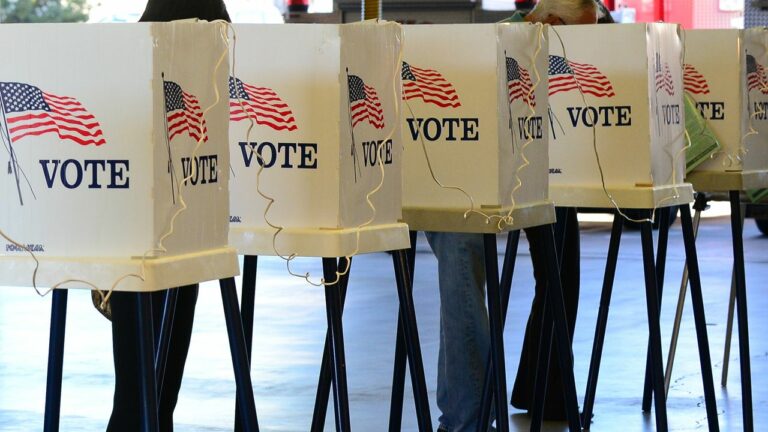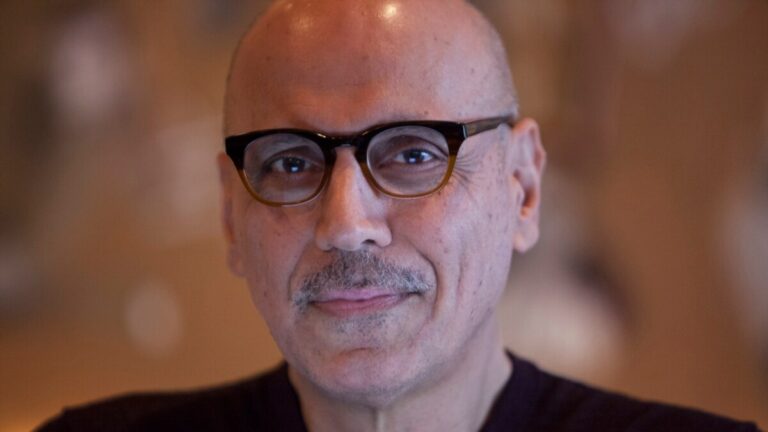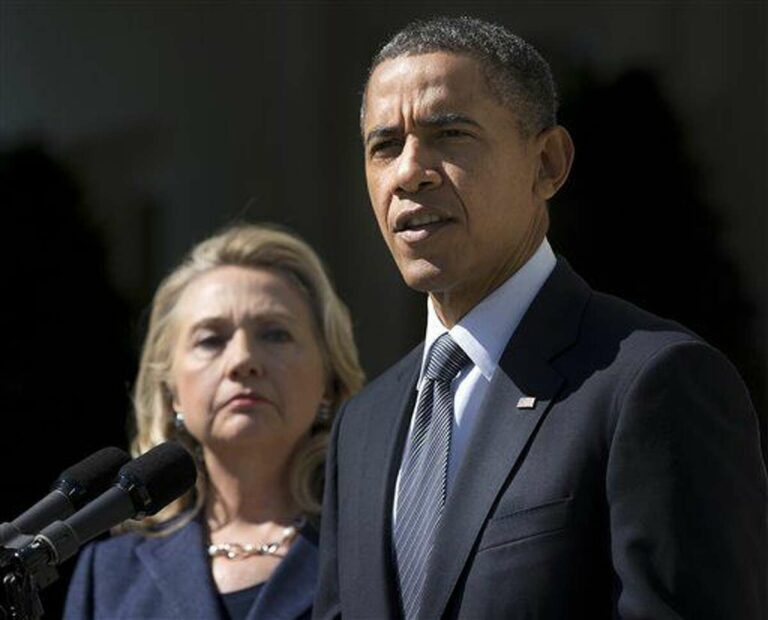This is an episode of Reality Asserts Itself, produced on May 6, 2015. On Reality Asserts Itself, Mr. Kiriakou explains how the CIA opened a criminal file on him when he was the first CIA official to publicly acknowledge torture was a policy; they stepped up their effort to charge him when he began investigating possible CIA complicity in war crimes in Afghanistan.
PAUL JAY, SENIOR EDITOR, TRNN: Welcome back to Reality Asserts Itself. I’m Paul Jay, and this is The Real News Network. We’re continuing our series of interviews with John Kiriakou. We’re at his house, as I’ve said before. He’s–continues to be under house arrest as we do these interviews. John was the first CIA officer to officially confirm that there was in fact a waterboarding torture program. He’s also the only person that went to jail for anything to do with the waterboarding torture program, and that was because he was the first person to officially confirm there was a waterboarding torture program. Unfortunately, the people who were actually doing the waterboarding and ordering the waterboarding didn’t go to jail and never kept him any company in jail. Thanks for joining us.
JOHN C. KIRIAKOU, FMR. CIA OFFICER: Thanks for having me.
JAY: So let’s pick up our story from that. Why did the CIA target you?
KIRIAKOU: The CIA never forgive me for confirming that it was waterboarding and otherwise torturing prisoners, that that torture was official U.S. government policy, and that the policy was approved by the president. Never forgive me.
JAY: So where did you say this, and how did you get [incompr.]
KIRIAKOU: I said this in December 2007 on ABC News. And it started oddly for me. I got a call from Brian Ross.
JAY: Let me just back up one sec, ’cause we’ve been kind of doing your story chronologically; now we’re kind of jumping.
KIRIAKOU: Okay.
JAY: So if I understand correctly, you left the CIA in what year?
KIRIAKOU: In 2004.
JAY: Two thousand and four.
KIRIAKOU: Mhm.
JAY: And you did some consulting. You did consulting for ABC.
KIRIAKOU: Not yet. I left the CIA in 2004 and I joined Deloitte & Touche, which is one of the big four public accounting firms.
JAY: Okay. So, first of all, why did you leave the CIA?
KIRIAKOU: I left the CIA, as funny as it might sound, to spend more time with my children. I had gone through a very acrimonious divorce. My ex-wife had moved to Northeastern Ohio with my two sons so that she could be closer to her parents. And I knew that my career was going to take me back overseas again in short order, and to someplace not family-friendly–Iraq, Afghanistan, Pakistan, Yemen, something like that. And so I decided I had had enough. And I had a friend who had a friend at Deloitte & Touche, one of the big four accounting firms. They were looking for someone to head counter–not counterintelligence, but competitive intelligence in their Washington, D.C., office. And I applied for the job, and a couple of weeks later was made an offer. I resigned from the CIA, and the very next day went into Deloitte & Touche.
JAY: Why does Deloitte Touche want a CIA guy?
KIRIAKOU: Well, I was actually the fourth CIA guy that Deloitte & Touche had hired. They had created this group called the Competitive Intelligence Group, with the idea being that they would hire former CIA officers or other people with experience in intelligence collection, and they would pair those people with the analysts, the corporate research analysts, to collect and analyze intelligence on their competitors. So my job was to collect first-person human-source intelligence on Ernst & Young, KPMG, PricewaterhouseCoopers, and a myriad of consulting firms, like IBM and Accenture and others. And we would collect this information. Sometimes they were tips.
JAY: For example?
KIRIAKOU: Well, for example, we tried to steal their pricing models or how they determined discounts. Or, interestingly, at least to me, we tried to figure out which of their partners were disgruntled so we could steal them, provided that they were top producers.
JAY: And I’m assuming they’re all doing it back to Deloitte Touche, everyone’s doing this to each other.
KIRIAKOU: Absolutely. They all have the same groups. Now, I will say that Deloitte’s no longer exists. It went away during the recession. But the other consulting firms, yes, they do have similar groups.
JAY: And are they looking for dirt on individuals?
KIRIAKOU: No. No.
JAY: Or this is more about recruitment?
KIRIAKOU: It’s much more about recruitment. And it’s also about undercutting pricing. If you’re going to go into a bid with a price of $24 million, let’s say, we want to know that so we can go in with a bid of $20 million and win the job, because a $20 million contract of course is better than a zero dollar contract.
JAY: And so they’re all doing it to each other. So this is a lot about the bidding process, then, trying to get someone to spill the beans on a bid.
KIRIAKOU: Yes. The bidding process–.
JAY: It’s like recruiting a double agent.
KIRIAKOU: Yeah. It’s the bidding process. It’s discounts. It’s disgruntled partners, like I said. It’s plans to expand service lines or offerings. Anything that might give you a corporate leg up.
JAY: And were you successful?
KIRIAKOU: Wildly, in some cases.
JAY: Really? Alright. That’s–we’ll do that another day.
KIRIAKOU: Okay.
JAY: Okay. So then what? Deloitte Touche. At what point do you start consulting for ABC?
KIRIAKOU: Not until after I went on TV and talked about torture. I was at my desk at Deloitte one day and I got a call from Brian Ross at ABC News. And Brian Ross told me that he had a source who said that I had tortured Abu Zubaydah. I said that was absolutely untrue, that I was the only person who was ever kind to Abu Zubaydah, and I said I never have laid a hand on anybody, least of all Abu Zubaydah. And he said–and I learned later that this was an old reporter’s trick–he said, well, you can come on the show and defend yourself. In the meantime, that same day, the day before, the same week, whatever it was, President Bush was telling the press that we do not torture, we do not torture, we do not torture.~~~
GEORGE W. BUSH, U.S. PRESIDENT: This government does not torture people. You know, we stick to U.S. law and our international obligations. Thirdly, there are highly trained professionals questioning these extremists and terrorists. We’ve got professionals who are trained in this kind of work to get information that’ll protect the American people. And by the way, we have gotten information from these high-value detainees that have helped protect you.~~~
KIRIAKOU: I knew that was a lie. And then, later, he said that we don’t torture, but if there is torture, it’s the result of a rogue CIA officer or a rogue operation. I knew that was a lie. So I went on ABC news. And he never even asked me on camera if I had tortured Abu Zubaydah. He just went straight into the torture.~~~
KIRIAKOU: And at the time, I felt that waterboarding was something we needed to do. And as time has passed and as September 11 has moved farther and farther back into history, I think I’ve changed my mind and I think that waterboarding’s probably something that we shouldn’t be in the business of doing.
BRIAN ROSS, JOURNALIST, ABC NEWS: Why do you say that now?
KIRIAKOU: Because we’re Americans and we’re better than that.
ROSS: But at the time, you didn’t feel that way.
KIRIAKOU: At the time, I was so angry and I wanted so much to help disrupt future attacks on the United States that I felt it was the only thing we could do.
ROSS: And with Zubaydah you think that was successful.
KIRIAKOU: It was.
ROSS: And we have reported that Khalid Sheikh Mohammed was also waterboarded.
KIRIAKOU: I was out of it by then, but it’s my understanding that he was also waterboarded.
ROSS: But those were really the only two.
KIRIAKOU: To the best of my knowledge, yes.
ROSS: And bottom line, as you sit here now, do you think that was worth it?
KIRIAKOU: Yes.
ROSS: Did it compromise American principles, or did it save American lives, or both?
KIRIAKOU: It–I think both. It may have compromised our principles, at least in the short term. And I think it’s good that we’re having a national debate about this. We should be debating this and Congress should be talking about it, because I think as a country we have to decide if this is something that we want to do as a matter of policy. I’m not saying now that we should, but at the very least we should be talking about it. It shouldn’t be secret. It should be out there as part of the national debate.~~~
KIRIAKOU: In that interview, I essentially called the president of the United States a liar. In fact, the next day, at a press conference–.~~~
DANA PERINO, WHITE HOUSE PRESS SECRETARY: I am saying that the United States does not torture. The president has been–.
JOURNALIST: I’m asking you if what was done in this case was not torture, in your opinion.
PERINO: I’m saying the United States does not torture.
JOURNALIST: But we have a former CIA officer, John Kiriakou, now saying that waterboarding was used. And you’re saying the interrogations were legal. He’s saying on the record now waterboarding was used in at least one case. You’re saying waterboarding is legal?
PERINO: Ed, I’m saying I’m not commenting on any specific technique. I’m not commenting on that gentleman’s characteristics of any possible technique. I have given you a very general statement about interrogations being legal, limited [crosstalk]
JOURNALIST: [crosstalk] was legal.
PERINO: I’m sorry?
JOURNALIST: You said–was it in the legal framework?
PERINO: Yes.
JOURNALIST: Everything that was done?
PERINO: Yes.
JOURNALIST: So waterboarding is legal.
PERINO: I’m not commenting on any specific techniques. And you can ask me all sorts of different ways and we can go back and forth, but I’m not going to do it, Ed.~~~
KIRIAKOU: Well, immediately the CIA filed what’s called a crimes report with the Justice Department, alleging that I had violated my secrecy agreement by leaking classified information. The FBI investigated, they watched the tape, and they concluded that it was already common knowledge that we were torturing prisoners. Human Rights Watch had come out with a report. Amnesty International had come out with a report. So I had added nothing, technically, to the debate. But what I had done was I had become the first CIA officer, current or former, to actually confirm that we were torturing prisoners and that torture was our policy.
JAY: Now, when you first talked about it, you defend torture, do you not? There’s a point where you say he’s been tortured, waterboarded once.
KIRIAKOU: A lot of people think that I was defending it. In fact, I was trying to be nuanced, and I failed at being nuanced. I was trying to present it as two questions, two separate issues. One, did it work? And two, was it right? And I said it wasn’t right, it was wrong morally and ethically, that it was torture and that I was opposed to it. In fact, I had been asked by a senior officer in the Counterterrorism Center if I wanted to be certified in the use of these so-called enhanced interrogation techniques, and I declined. I said I had a moral problem with it. On that first question, did it work, the CIA officers in the field who were torturing prisoners were reporting back that it was working and that Abu Zubaydah, for example, had cracked after one session, one waterboarding session, and that he had given up actionable information that saved American lives.
JAY: And that’s what–when you’re on television, that’s what you knew at that time.
KIRIAKOU: That’s what I knew at that time.
JAY: So you conclude that it was done once and it worked.
KIRIAKOU: Correct; although it was wrong, it had worked. We didn’t know, nobody knew, until the CIA inspector general report was released in April 2009 that said that, no, he was waterboarded 83 times and Khalid Sheikh Mohammed was waterboarded 147 times. So they were even lying to each other internally to try to justify this thing. So I told Brian Ross what I thought I knew as facts, but I was wrong.
JAY: So what’s the next big beat for you? Is it the inspector general’s report?
KIRIAKOU: Well, yeah. In that year, 2008 to early 2009, I ended up consulting for ABC News. And, frankly, what I had done is I called Brian Ross and I said, you ruined my life; the least you could do is throw me a little bit of work. And so ABC brought me on as a consultant. In early 2009, John Kerry offered me a job as the senior investigator on the Senate Foreign Relations Committee. So I was under the impression that he actually wanted me to investigate things. And I ran into even more trouble with the CIA in that job.
JAY: Now, between going on TV and acknowledging that there is torture, they open a file on you, and the inspector general’s report, and Kerry’s job, how actively are they pursuing you and how aware are you of it?
KIRIAKOU: I was unaware of any investigation aimed at me, targeting me. It turned out that they never stopped investigating me from December 2007 until my arrest in 2012.
JAY: Prior to you going on television, was there any sense that the CIA wasn’t happy with you?
KIRIAKOU: Oh, no, none. On the contrary, when I was at Deloitte & Touche, they were preparing to bid for a job in the CIA’s Counterterrorism Center. I still had an active security clearance at the time, and so they asked if they could add me to the list of cleared individuals that might participate in this contract. I said yes, and I called the security officer at the Counterterrorism Center, and she said, yeah, that’s great with us. And I ended up not doing it, because my boss was willing to give me up for six weeks, but they wanted me for six months until the contract really got going. But I had no problems whatsoever with the CIA until I went on ABC.
JAY: ‘Cause you’d think if they had no issues with you and you say this one thing on TV, they would say, oh, look, this guy’s been a stellar agent all this time and never–and so on, and everyone already knows it’s happening; we could just, like, ignore it.
KIRIAKOU: Right.
JAY: But by targeting you, they’re making it 100 times more an issue, even in the public eye. And eventually it’s going to go public. I mean, look where it’s led to, all these interviews [crosstalk]
KIRIAKOU: Well, that’s why I maintain the CIA is the organization that made me a human rights activist. It’s the CIA that’s made me want to take to the streets to defend our civil liberties. Otherwise, I wouldn’t have given it two minutes of thought. But you’re exactly right. And even if they were angry, there are other cases of CIA officers, current CIA officers, exposing classified information. And what happens to them is they get a letter in their file and they don’t get promoted for a year. They don’t get seven felony charges–or five felony charges.
JAY: So I go back to my first question: why target you in this way?
KIRIAKOU: I think that the targeting came from inside the Counterterrorism Center. It wasn’t necessarily the CIA as an organization, as a whole; it was CTC. CTC was run by cowboys and hardasses. And I think that they were so furious, that what I had done was unforgivable, that they are the ones who asked the Justice Department to go after me. JAY: CTC is this thing we see on this TV show 24, right?
KIRIAKOU: Yes.
JAY: That’s–I mean, does it bear any resemblance to reality, the 24 room?
KIRIAKOU: No. The room? No. No, that’s all Hollywood.
JAY: Okay. So let’s jump ahead. The inspector general’s report comes out. You find out that it wasn’t once; it was 83 times.
KIRIAKOU: Right.
JAY: And in fact the intelligence wasn’t actionable. So what does that do to you? And what are you doing at the time?
KIRIAKOU: Well, frankly, it makes me look like a fool. At the time, I was working for John Kerry. I had only been there about a month, maybe six weeks. But it made me look like a fool. But I issued a statement saying I gave the facts as I knew them. I think that the inspector general’s report shows that the CIA will lie to its own staff officers. I had no regrets.
JAY: Two years had gone by. So why does this eventually lead to a charge? I don’t get–I mean, how–.
KIRIAKOU: While I was at the Senate Foreign Relations Committee, I decided to do some real investigations. So at first I wanted to investigate what was called the Dasht-i-Leili massacre. This was an incident in northern Afghanistan on November 30 and December 1, 2001, where the Northern Alliance had captured as many as 2,000 Taliban soldiers and wanted to incarcerate them. Well, there were no jails in Afghanistan big enough to hold 2,000 prisoners all at once. So what the Northern Alliance decided to do was to load these men onto container trucks and take them out into the desert, deep into the desert, and just hold them there until they could figure out how to get them to different jails around the country.
JAY: This is General Dostum.
KIRIAKOU: This is General Dostum and his men.
JAY: Who’s now a vice president?
KIRIAKOU: Yeah, vice president or deputy prime minister, or one or the other. So nobody had put any air holes in these containers, and there was no food and there was no water. So after an eight-hour drive into the desert–.
JAY: How many people were packed in a container?
KIRIAKOU: Two thousand people in a series of containers. So, after eight hours’ drive into the desert, one of the witnesses who survived told us that when they opened the back of the tracks, that bodies fell out like sardines out of a can. So almost everybody died. By our count, there were 18 survivors out of 2,000. The reason I was interested in this is because I had taken a call from a human rights activist who told us that he had a witness, who was a boy at the time and didn’t go onto the truck, and he said that the boy saw two white men wearing jeans and black T-shirts and speaking English at the box-up. Well, who’s going to be in Mazari Sharif, Afghanistan, speaking English, wearing bluejeans, on November 30, 2001? So I interviewed everybody at the State Department at the time who mattered from 2001. I interviewed several human rights activists. And I sent a letter to the agency asking for some clarification. Within a couple of days, the deputy office director–or staff director is what he’s called–at the Senate Foreign Relations Committee told me that the investigation was dead and to drop it.
JAY: Just quickly, just coincidentally, I happened to have made a documentary called Return to Kandahar in Afghanistan in the spring of 2002, and we interviewed General Dostum. So here’s a few seconds of that, just to give you a sense of who we’re talking about here.~~~
NELOFER PAZIRA (SUBTITLED TRANSL.): People are afraid that those responsible for earlier crimes and destruction are back in a position of power.
ABDUL RASHID DOSTUM (SUBTITLED TRANSL.): We shouldn’t accuse one another of doing this and that. Even in Canada you have biases. Though they don’t have weapons to kill each other, like the football teams all around the world, people take sides. The same with Afghans, whom I have seen in America. Some support one group and some support another. There is nobody unbiased.
PAZIRA (ENGLISH): In the ’90s, when these guys fought each other, over 1 million people died and half of the city of Kabul was destroyed. That’s not a football game.~~~
JAY: So that’s General Dostum. Now, General Dostum clearly is–was, is a war criminal. You had uncovered evidence that proved it. And it gets shut down. Why?
KIRIAKOU: I think that I was poking the hornets nest at the time. And I’m not sure if I was doing it subconsciously or if it just worked out that way. But I wanted to know if CIA officers were present at the box-up. Now, I know CIA officers were present 20 miles away, because the box-up was the same day as the uprising at Qala-i-Jangi, where–
JAY: This is the prison.
KIRIAKOU: –Mike Spann was killed, in the Taliban – al-Qaeda uprising that took place in that prison. So I know they were in the area. I wanted to know if they were at the box-up.
JAY: Which was another slaughter.
KIRIAKOU: It was another slaughter, yes. So I dropped that investigation. And then I got a call from a reporter who told me that he had some information that seemed to indicate that the CIA was taking its torturers and putting them under State Department cover.
JAY: Let’s back up one sec just to close the loop on the previous story. If you had in fact found that there were CIA at the box-up, they would have been implicated in a war crime.
KIRIAKOU: Correct. Correct. And that war crime would have been detailed in an official report from the Senate Foreign Relations Committee.
JAY: Okay.
KIRIAKOU: So I moved on to another investigation. A reporter called me and said that he had information that the CIA was taking some of its torturers and placing them under State Department cover, which was a violation of the cover agreement between the CIA and the State Department. So I sent the State Department a letter asking for clarification. Weeks passed. Something like five, six weeks passed. And finally a colleague of mine comes into my office and says, oh, you got a response to your letter from the agency. I said, I didn’t get any response. He said, well, they classified it top secret, and you’re not cleared for it. I said, well, what’d they say? And he smiles and he says, they said go fuck yourself. So that was the end of that investigation.
JAY: So how long after all this do you get charged?
KIRIAKOU: Well, it was another three years. There were other investigations, too, at which I was poking them. They even called my wife in to the CIA security office and threatened her.
JAY: Now, your wife–.
KIRIAKOU: My wife was a CIA officer at the time.
JAY: Is or was?
KIRIAKOU: Was.
JAY: Was CIA. You met at the CIA.
KIRIAKOU: We met at the CIA.
JAY: So they call her in and what?
KIRIAKOU: Well, I had written an op-ed in the Los Angeles Times in which I said that we need to be very cautious about Iran’s inroads into Latin America; we need to improve our relations with Latin American countries because the Iranians are improving theirs. And I wrote one sentence in that op-ed dealing with Iranian travel to Latin America. Now, I got that op-ed cleared by the CIA. So, finally, they call my wife in to security. And they have a camera on. And the security guy says, this is not an investigation, it’s an inquiry, but we’re going to tape it. What do you think should be done with people who leak classified information? (Totally loaded question.) She said, well, what are you talking about? Well, your husband wrote an op-ed in the Los Angeles Times. And she said, he got that op-ed cleared.
JAY: Let me ask, why would you have to get it cleared? You’re no longer working for the CIA.
KIRIAKOU: I have to get anything I write dealing with intelligence, CIA, foreign affairs, government, anything, for the rest of my life, cleared by the CIA’s Publications Review Board.
JAY: What about this interview or the other interviews [crosstalk]
KIRIAKOU: Well, these are written products–articles, books, magazine articles, you know, op-eds.
JAY: Interviews are okay.
KIRIAKOU: Interviews are okay.
JAY: Alright. Go on.
KIRIAKOU: So she said, well, he got that cleared by the Publications Review Board. And the guy tells her, and we really appreciate that, but there is a line in there that is top-secret. And she said, well, that’s impossible; my husband doesn’t have access to top-secret information. And he says, but you do. So she said, I think I’ve said enough. And she got up and walked away.
JAY: What was the line?
KIRIAKOU: Well, it was that Iranians no longer need visas to travel to Bolivia.
JAY: What?! This was top-secret?
KIRIAKOU: She was very upset. And she called me. And I told her, take it easy. I said, do you know where I got that information? And she said, no. I said, I got it from the Bolivian Foreign Ministry’s website. It’s on the website.
JAY: And why on earth would it be secret anyway?
KIRIAKOU: I told her, one thing that you may want to tell them is, number one, apparently nobody in the CIA speaks Spanish, first of all. Secondly, they apparently have a source who’s selling them press and calling it intelligence. So they were upset about that.
JAY: Well, they’re out to get you at this point.
KIRIAKOU: At that point they were out to get me. But I didn’t think that this would result in any kind of criminal charges.
JAY: It’s almost sounding like when you go public on the torture issue, they open a file.
KIRIAKOU: Yeah.
JAY: It’s this stuff where they really decide, we have to shut this guy up.
KIRIAKOU: Well, it got much, much worse. Toward the end of my stay at the Senate Foreign Relations Committee, there was an incident that I’ll tell you about. Part of my job was to have–.
JAY: Okay. Hang on. This is going to be a cliffhanger. You’ve got to join us for the next part to find out what happened next on Reality Asserts Itself on The Real News Network. Thanks for joining us.
Never miss another story
Subscribe to theAnalysis.news – Newsletter
“John Chris Kiriakou (born August 9, 1964) is an American author, journalist and former intelligence officer. Kiriakou is a columnist with Reader Supported News and co-host of Political Misfits on Sputnik Radio.
He was formerly an analyst and case officer for the Central Intelligence Agency (CIA), senior investigator for the Senate Foreign Relations Committee, counterterrorism and a consultant for ABC News. He was the first U.S. government official to confirm in December 2007 that waterboarding was used to interrogate al-Qaeda prisoners, which he described as torture.
In 2012, Kiriakou became the first CIA officer to be convicted of passing classified information to a reporter. He pleaded guilty and was sentenced to 30 months in prison.”











